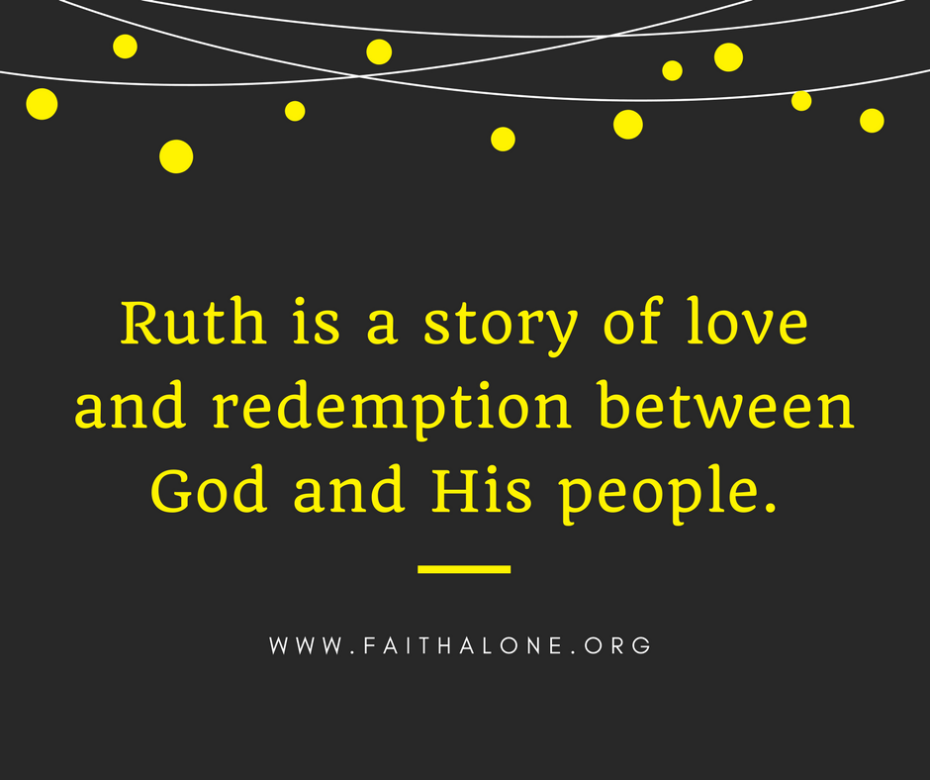At first glance, Ruth seems to be a very personal story about a struggling widow and her daughter-in-law trying to survive in the world.
It’s a relatable story, about real people, facing real trials, who go through a tragedy.
We all know a story like that. You read about them in the papers. See them on TV. Maybe you’re living that story right now.
At first, Ruth may seem out of place in the grand narrative of the Old Testament.
How does the story of a local widow in a backwater town compare with the stories of creation and fall?
Of the rise and demise of peoples, nations, and empires?
With God’s great acts of deliverance?
Ruth can be deceptively small.
It has a big story to tell.
If you take a step back, Ruth is not just about tragedy, but also a great love story—not just romantic love, but the bonds of love between family. It is about the love between a mother and her daughter-in-law; between a young widow and her prospective husband; and between a grandmother and her new grandson.
Step back even further, and Ruth is also a book about redemption. Poverty is a terrible reality for many. In the Old Testament, if a man had to sell his lands or himself because of poverty, the Mosaic Law allowed for both to be redeemed and restored by a near family member. This person was called a “kinsman redeemer” (cf. Lev 25:23-25; 47-48). The book of Ruth shows how this redemption worked out in practice. It is about the kinsman redeemer.
But Ruth has an even bigger story to tell.
If you step even further back, it turns out that Ruth is a story of love and redemption between God and His people.
It turns out the main character in Ruth is God Himself.
Ruth begins by setting the stage during a time of national decline and apostasy “in the days when the judges governed…” (Ruth 1:1). What would God do? How would He save His people from national destruction? Ruth tells the tale. Despite the darkness of the times, Ruth ends with the promise of a coming king, David:
Then Naomi took the child and laid him in her lap, and became his nurse. The neighbor women gave him a name, saying, “A son has been born to Naomi!” So they named him Obed. He is the father of Jesse, the father of David (Ruth 4:16-17).
The redemption of Israel is coming!
So don’t be fooled by Ruth. It is a little book that tells a very big story.
Ruth begins with widowhood and ends in marriage.
It begins in grief, and ends in celebration.
It begins with bondage and ends with redemption.
It begins with death and ends with birth.
It begins with a time of national decline and ends with the promise of national greatness.
It begins with the explicit struggle for temporal salvation and ends with the implicit promise of eternal salvation through David’s greater Son, the Messiah.
Ruth seems small, at first. But the deeper you dig, the more you find. No wonder the Plymouth Brethren called Ruth the gospel in the Old Testament.


